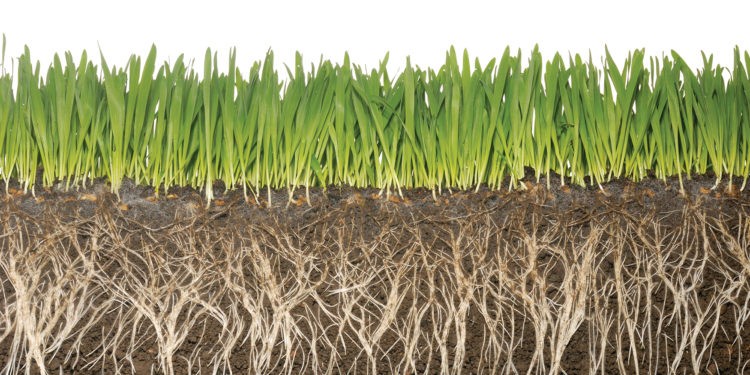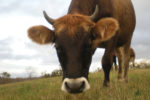Healthy & Environmentally Beneficial

Sarah Hoffman didn’t follow a typical career path. As someone who earned a degree in Chemistry then attended medical school, cheesemaker is not the profession you’d expect on her resume. But, cheesemaker and small business owner it is. Hoffman is the driving force behind Weston, Missouri’s Green Dirt Farm, producers of some of the most delicious sheep’s milk cheese I’ve had the opportunity to taste! But, as the name implies, Green Dirt Farm is about a lot more than tasty cheese. For Hoffman and Green Dirt, the bottom line is caring for the animals that provide the milk for that cheese and nurturing the land on which the animals live.
“When we first bought this property back in 2002, a small part of the land, about three acres, was being used to produce tobacco, so it was entirely cleared out. The first thing I did was plant native prairie grasses. It became a restored prairie,” Hoffman recalled.
Hoffman says the soil and the soil structure is the most important element to Green Dirt Farm’s operation. With healthy soil comes an abundance of native grasses on which the animals graze. Hoffman says that grazing results in complex, delicious milk, which then leads to complex, delicious cheese.
“We think that’s exactly why our cheeses win so many awards. We have all of this plant diversity that leads to incredibly flavorful milk,” Hoffman stated.
I can personally attest to the bold and deep flavors of Green Dirt’s cheese. Their fresh cheeses, with flavors like Rosemary and Nettle, are delicious on a cracker, crostini, or breadstick. And, Hoffman’s aged cheese, the Dirt Lover, Prairie Tomme, and Wooly Rind among others, are some of the most complex sheep’s milk cheese you will ever encounter.
For Hoffman, it all comes back to the land. “Our pastures reflect the care that we’ve given the soil. Bringing back the native prairie grasses are so important to the soil because of how deep their roots are,” Hoffman said.
Hoffman says the animals graze on the grasses and eat the seed stems, which they then carry to other parts of the property and distribute. That leads to the proliferation of more native grasses throughout the farm, which Hoffman has seen and tracked through the years.
“Seeing all of that diversity come back into the pastures, the insect life that’s present in our pastures, and seeing the way the nutrient cycle happens when the animals deposit the manure and the insects feed on that, it all adds up to a very natural, very healthy cycle, Hoffman stated.
Healthy and environmentally beneficial. In fact, as we celebrate Clean Air Month 2018 I should point out Green Dirt Farm is doing its part there as well. “By managing the pastures the way we do, carbon is sequestered in the soil in the form of plant matter. That helps offset the greenhouse gasses produced by the sheep,” Hoffman said.
Hoffman says there’s indisputable evidence that farming naturally without the use of fertilizers, herbicides, or pesticides works. “It’s been very gratifying,” Hoffman mused. Gratifying, delicious, and good for the planet all at the same time. How often can you say that?






